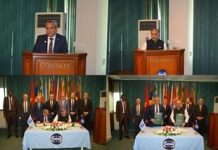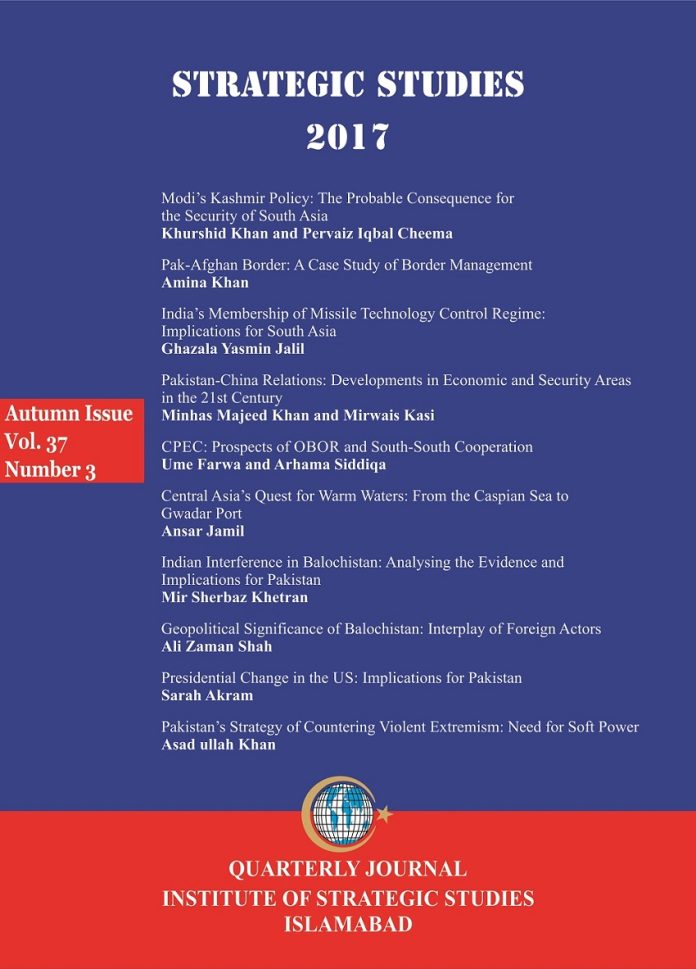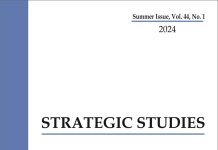In recent years, the traditional hostility between the two South Asian nuclear neighbours, Pakistan and India, has increased tremendously. Aimed at their deep-rooted territorial disputes, water and terrorism issues, the international community believes that a growing military and nuclear competition pose a grave danger to the regional as well as to the international peace and security. All past efforts to normalise and stabilise Pak-India relations could not yield any positive results. There is a growing fear that over the issues like Kashmir, water and terrorism, a conventional conflict or a limited war between Pakistan and India could escalate into a nuclear war. Under their perceived security concerns, nuclear weapons developments and modernisation programmes in the South Asian region are irreversible. However, the international community believes that there is a need to explore ways to regulate the nuclear behaviour of Pakistan and India according to the evolving nuclear non-proliferation and disarmament norms.
With this background, Mario E Carranza in his book, India Pakistan Nuclear Diplomacy: Constructivism and the Prospects for Nuclear Arms Control and Disarmament in South Asia, has made an attempt to explore the prospects of nuclear arms control and disarmament in South Asia. In contrast to the existing realist/neorealist approach towards Pak-India nuclear competition, he supported his argument by providing an alternative theoretical framework based on Constructivism. He challenged realist/ neorealist approaches as rigid ones by comparing them with Constructivism, which provides enough space to accommodate emerging Nuclear Non-Proliferation Norms (NNPN), global disarmament norms and influence of the international social environment. He compared both these approaches and provided an in-depth literature review for better exploring the prospects of nuclear arms control and disarmament between Pakistan and India. He argued that existing literature on nuclear competition between Pakistan and India is mainly based on realist/neorealist approaches, which revolve around security dilemmas and stability instability paradox, whereas there is a gap of constructivist analyses of the Pak-India nuclear conundrum. Based on a constructivist theoretical framework, he tried to find prospects of building a nuclear arms control regime, with or without waiting for a final solution to the Kashmir dispute in South Asia.













